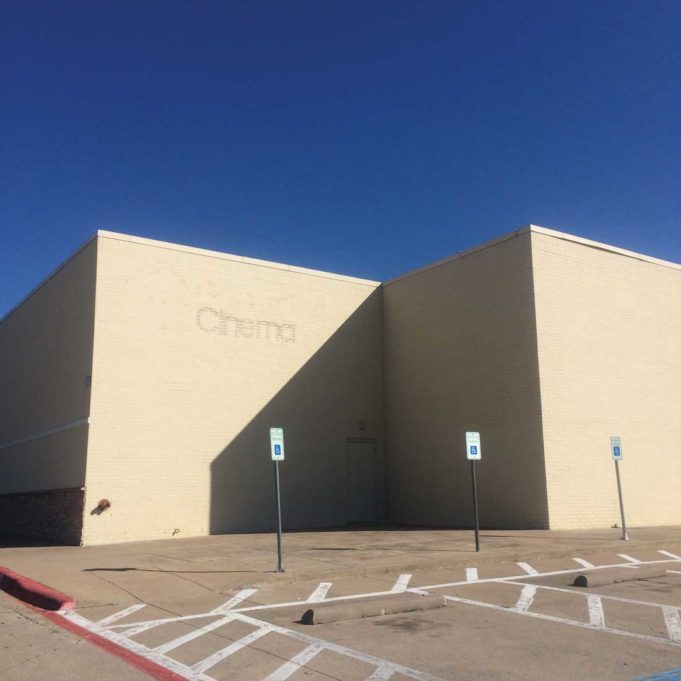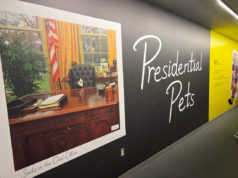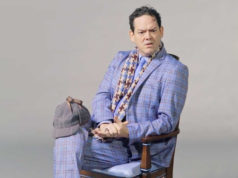Allegheny Center was for losers. The shopping mall on the north side of the cold, gray, soul-destroying Rust-Belt city where I grew up didn’t have a Merry-Go-Round or a Gap or even a Chess King, not a single store that didn’t sell clothes made out of cardboard. For a tween, the only thing worse than being seen shopping with your family was being seen shopping with your family at Allegheny Center. Or at any one of its lowly step-sister malls nearby. And there were several (North Hills Village, Northway Mall, Parkway Center Mall). Allegheny Center happened to be the one closest to our house. In the mall’s defense, there was a pizza parlor on the second level that had the best cherry pop. The pizza was mezza-mezza. But that pop: magnifico.
What can I say: We were Allegheny Center Mall-kinda people. On rare occasions, like Christmas or someone’s birthday, we were Monroeville Mall- or Century III-folk – there were Gaps at both places, if I recall correctly, and I believe that I am. On the rarest of occasions, we were Shadyside- or Sewickley-peeps. “Rarest” because even though I wanted to be as cool as tweenly possible, I knew my place, and among the millionaires and children of millionaires in two of the most affluent neighborhoods in the great Northeast was way above my station. At least at Allegheny Center, our family’s noses could be the ones doing the looking up.
A 14-year resident of Fort Worth now, I often – unintentionally, I swear – categorize people I meet by mall. Is this guy a Ridgmar person? Looks too rough for Hulen Mall, but maybe, based on the hair gel and tatts, he’s a North East-kinda cat. But wait. He speaks fluent Spanish. Has to be La Gran Plaza.
Your teenage son or niece probably has no idea what I’m talking about. They belong to perhaps the only generation since the 1970s to grow up in an America not anchored by the suburban mall experience. (Where do kids hang out today? Do they still go to Dairy Queen? What about the local baseball field? It’s probably a soccer field, I know. #sad) The great American mall has been in decline since the early aughts, a victim of online retailers and discount centers like Walmart, Target, and Ross. Last year, Green Street Advisors told Fortune that about 300 malls could close over the next few years. Also, the malls that are being constructed now are sneakily referred to as “villages” or “urban concepts.” C’mon, man. They’re malls. They just happen to be outdoors. The only other major differences are that when you’re cruising “downtown” Keller or “downtown” Lewisville, you won’t run into a food court, an ear-piercing pagoda, or a quorum of teenagers throwing Slurpees at one another.
Fort Worth malls have not been immune to the decay. Now that Ridgmar has lost Neiman Marcus to the swanky, outdoor environs of The Shops at Clearfork, it’s going to be transformed into a mixed-use development (Cheddar’s in one corner, Applebee’s in another, a movie tavern over there, and Commando II filming in the middle). Macy’s pulled out of Ridgmar last year, but one of the flagship department store’s fancy, new outlet-style concepts, Backstage, debuted at Hulen Mall this summer. The key word is “outlet,” meaning “discount.” And up to 80 percent on some items. People just can’t get enough of saving money, it seems.
Dying malls have a name: greyfields. Some of these huge, empty concrete monstrosities are being put to good use. Some are hospitals or churches, others parks. Will Fort Worth’s Big Three ever get to that point? Probably not in the foreseeable future. Unlike most of the rest of the country, the Fort’s middle-class is still pretty healthy. And as long as there’s a middle-class, there’ll be a suburbia, and as long as there’s a suburbia, there’ll be great American shopping malls. In addition to malls’ wholesale transformations, some are merely swapping out anchors. Not for other clothing retailers but for tech stores. Amazingly, this generation of kids might be the only one of its kind in the history of mankind to not to care about brand-name labels. Young people would rather spend their money on cyber. And also on experiences. Business Insider’s Jason Dorsey, an expert on teens and millennials, said that members of iGen, as he calls them, specifically want “experiences they can broadcast on social media.” Shopping probably isn’t high on that list.
Allegheny Center was located on the North Side, a crime-riddled fringe of downtown. The mall is now a mixed-use complex, with apartments, offices, and some retail spaces and is still reportedly pretty low-rent, even though much of the rest of the neighborhood has benefited from intense citywide revitalization efforts. The mall stopped being a mall about 15 years ago.
Is Fort Worth living in the past, or are we so behind the curve that we’re ahead of it?












